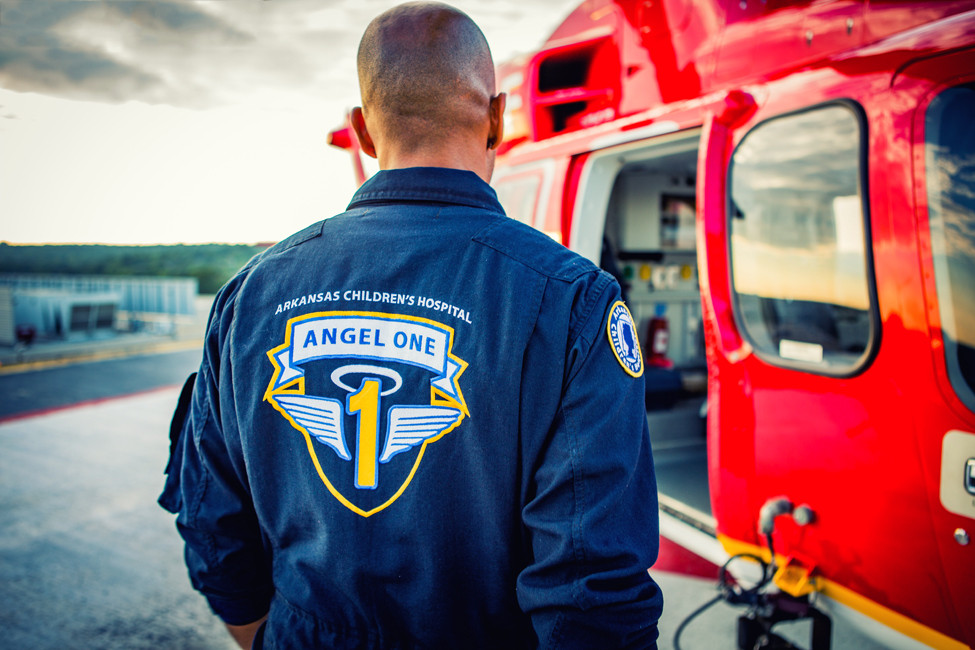Behind the Blades of Arkansas Children’s Hospital’s Angel One

The first time Latasha Holt-Bocksnick brought her 3-year-old daughter Blakelee Holt to Arkansas Children’s Hospital, she was unconscious and didn’t wake up for three days. It was a terrifying first experience at ACH in what would be a series of about 20 stays at the hospital, including two in the intensive care unit, over the next four years.
Now, Latasha and 7-year-old Blakelee still never know when she’ll end up back in an ACH hospital bed for days or weeks.
“It really doesn’t ever get easy. I wish I knew how to prepare, but we don’t — It’s always just out of nowhere,” Latasha said.
After the first incident when she was 3, Blakelee was diagnosed with a rare disorder that can cause her blood sugar to drop dangerously low at any time, and she’s especially vulnerable when she gets sick. Although the family lives about an hour and a half away from Children’s, they know the care that Blakelee gets there is the best — and sometimes the only way her blood sugar will return to normal levels.
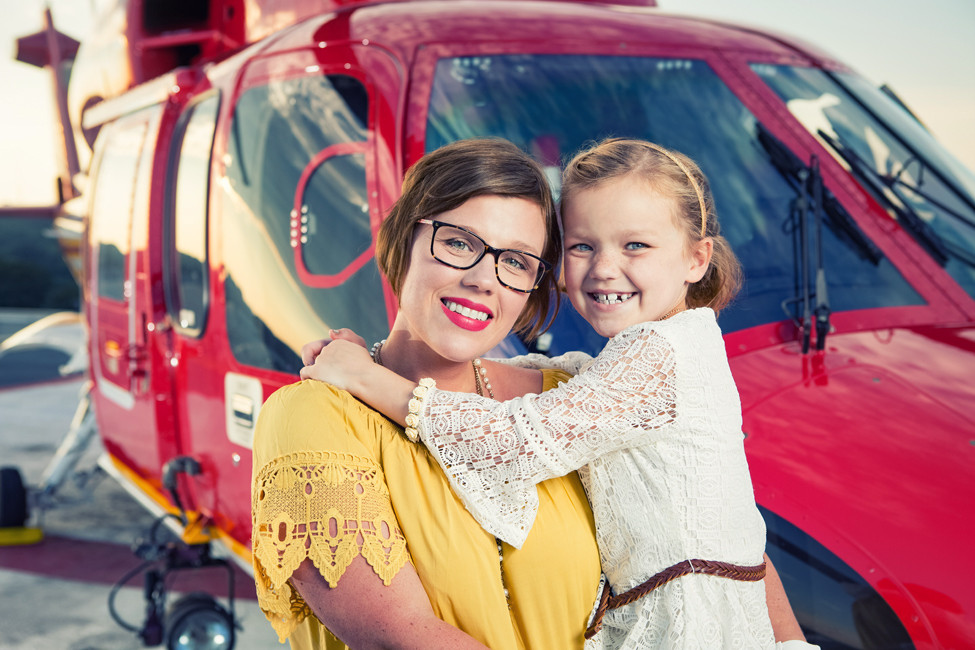
Since that first time, Latasha said she has become more comfortable in the hospital.
“This really feels like home,” she said.” I’m not knocking any of the other hospitals, but they don’t have the care capacity that we have here.”
And Blakelee feels the same way. Her memories from the hospital are happy ones — interacting with therapy dogs, winning prizes from playing bingo, visiting Camp Wannaplay and taking wagon rides through the maze of hospital halls.
“Last time I was here, I got a therapy dog named Twister and he had a brother and a sister or maybe two brothers, I can’t remember,” Blakelee says, grinning ear to ear and watching fish dart around their tank in the hospital lobby. “And sometimes I get to play on the Xbox!”
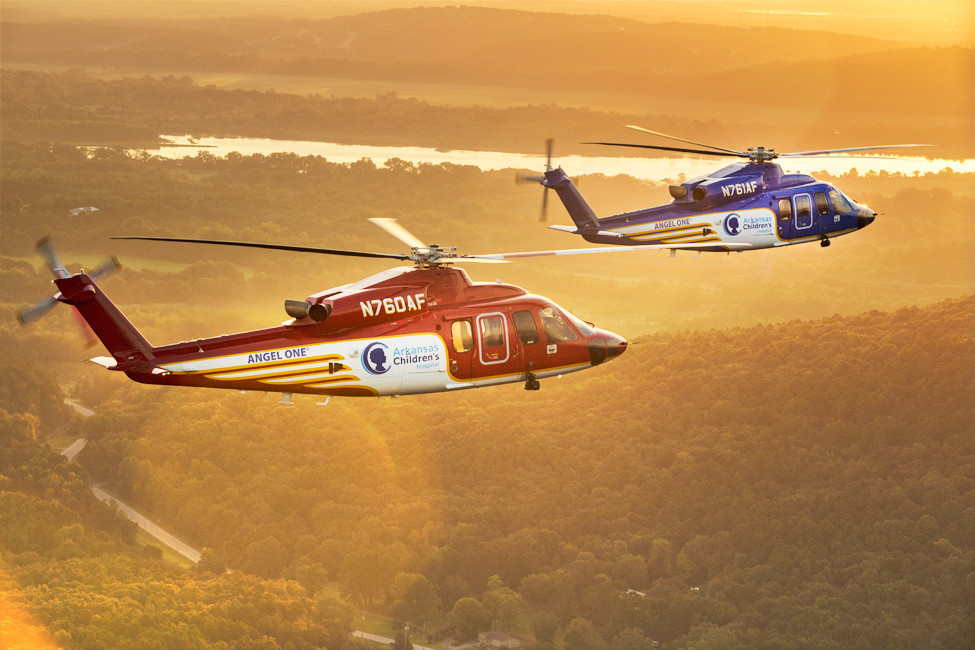
But the scariest parts for Latasha are often the parts that Blakelee can’t remember — including the ambulance rides she’s taken and the Angel One helicopter flight they took earlier this year.
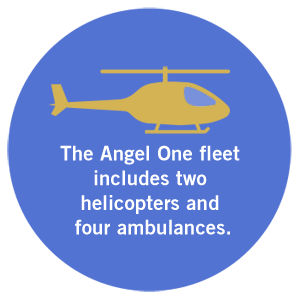
“The times we’ve taken an ambulance I’ve been so scared,” Latasha said. “It’s a long way and you don’t go that fast, despite what you think. When you’re in the moment, they’re really not that fast, knowing that there’s that hour and 30 minutes when they’re just checking vitals and keeping her going.”
Latasha said one of the ways the helicopter was so different from the ambulance was the crew on board: it includes a respiratory therapist and nurse along with the pilot rather than EMTs, who do not have as much specialty training. And although Latasha was in the aircraft the entire time, not once was the focus on her.
After 25 years of med-flighting children to and from ACH, the Angel One helicopters run “like a well-oiled machine.”
“There was someone always focused on Blakelee and I really didn’t matter, which was kind of cool,” Latasha said. “They were all about her and they each had a job to do in a different way and they were on a mission to do that.”
Flight nurse Greg Taylor has been part of the Angel One crew for eight years. He works 12-14 hour days on average, but has done as many as 20 consecutive hours in extreme circumstances.
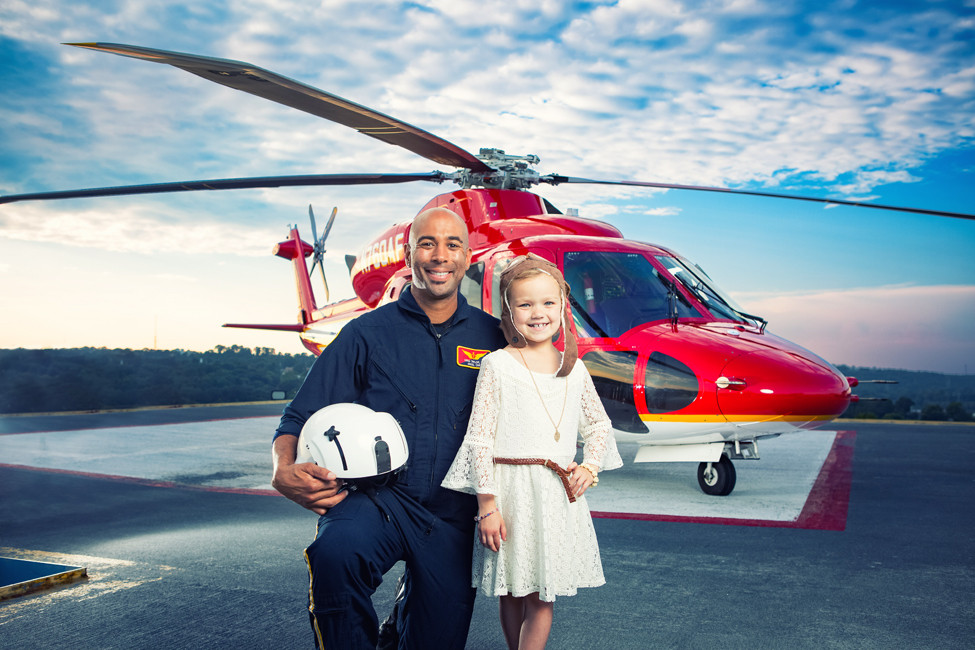
He said he’s done so many flights that there isn’t one in particular that stands out, but that each time they go to pick up a child and begin a transport, he’s reminded why he loves his job.
Flyby the Numbers
5
The average daily number of children transported by Angel One.
10
The average number of years an Angel One crew member has flown with the team.
55 Minutes
The maximum time it takes for the helicopters to reach any part of the state.
2,000
Patient transports made each year
$7,500
The average starting cost of a typical helicopter transport. However,
philanthropic funds help cover the cost when families cannot afford it, according to ACH spokesperson Blair Neel.
“Just going into the hospital and having them standing there waiting to see you, that energy in the air that they know you’re going to do something good in the situation is just very cool to see,” Greg said.
And Latasha is incredibly thankful for the calm and expertise that the crew brought to her and Blakelee’s stressful and scary situation.
“They know what to do,” Latasha said. “When it gets that scary, you just kind of step back like, ‘somebody take over and do something.’ They just came in and took over and did their thing and got us here (to ACH) and it was kind of a sense of relief.”
In Blakelee’s situation, they used helicopter transport because of the urgency of the situation. Greg said there is a misconception that the Angel One helicopters are used to transport victims from emergency situations when in fact they are almost exclusively used for hospital to hospital transportation.
“Specialities are the biggest (reason) for using the helicopter,” he said. “Every children’s system does a good job, but some things they do better than others — a particular procedure. There are very particular procedures that we do and don’t do … All of the hospital systems are kind of working together even though they're independent of each other. If we can’t do it well we need to take them to a place where they can do it well.”
He said in rare circumstances they have done flights to emergency scenes, including when Mayflower and Vilonia were hit with a bad tornado several years ago.
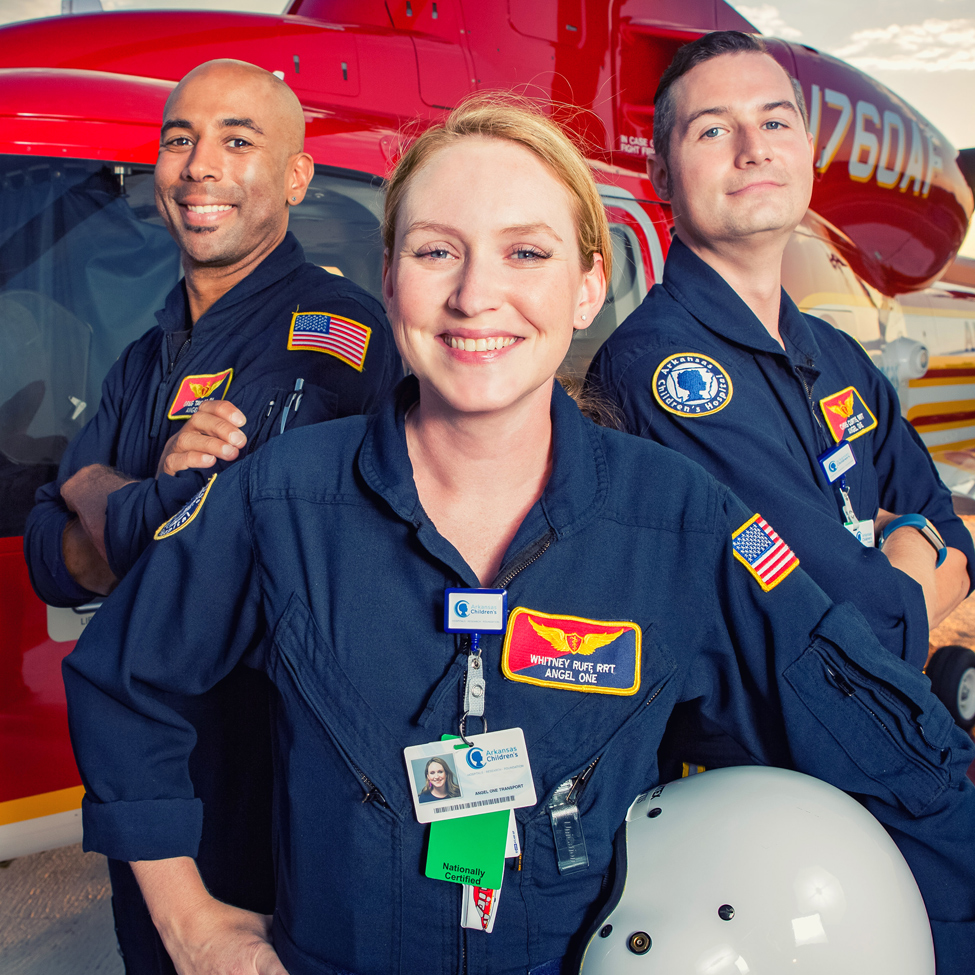
Flight nurse Greg Taylor and respiratory technicians Whitney Ruff and Chris Curtis work shifts up to 20 hours long in extreme circumstances.
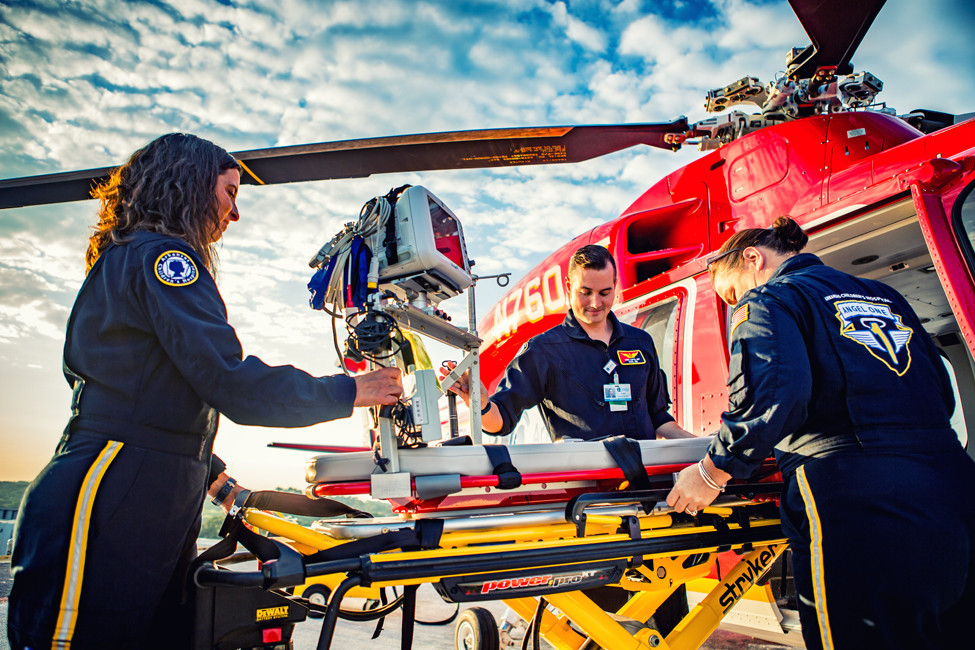
Even though Greg does an incredible amount to help these families and kids simply by the nature of his job, he and another flight nurse, Christy Tennant, decided several years ago that they wanted to do more — so they started the Angel One 5K as a fundraiser and to show the community what Angel One is all about.
On Oct. 7 at 8 a.m., the sixth annual Angel One 5K/10K will take place at Two Rivers Park. The event has expanded significantly since it began and Greg thinks it’s still in growth mode.
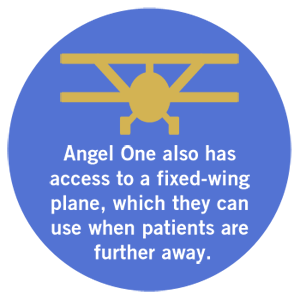
“We’re very family oriented so we want to get the kids involved. It’s already set to be kind of a carnival for them at the event — bounce houses, face painting and that kind of stuff,” he said. “Originally it was just supposed to be a small little thing, but it just keeps snowballing.”
This is the first year that they are offering a 10K option in addition to the 5K. Registration for the 5K is $25 and 10K registration is $35 at AngelOneRun.com. A helicopter and ambulance are planned to be onsite at the run.
“We wanted to do something big with this program here and wanted to make a difference and this kind of fell in our lap,” Greg said.
The event raises money for gas cards for families who drive long distances when their child is transported to ACH by Angel One. Last year, they raised enough money for more than 3,000 gas cards for families who needed help traveling to and from ACH to be with their child.
“We’re really thankful that Angel One is here,” Latasha said. “You don’t understand how important it is until you need it. I hope no one does. But when you do, that’s when you start realizing how important it is. I just hope everybody can appreciate that and give back.”
